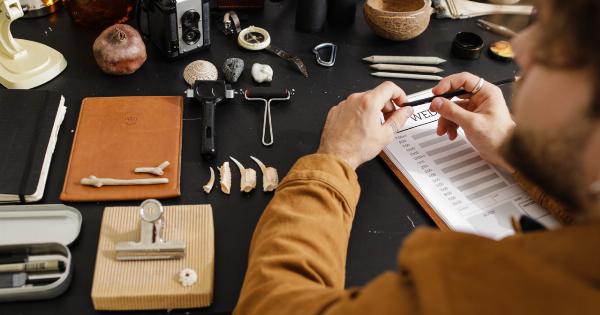When it comes to sex and gender, stereotypes are bound to show up. These stereotypes are so deeply ingrained in our society that most people don’t even realize that they’re perpetuating them.
In fact, stereotypes are often portrayed in movies, books, and other forms of media, which can lead to negative effects on both individuals and society as a whole. Therefore, it’s important to break down these sexual stereotypes and educate ourselves and our communities about their harmful impact.
In this article, we will dive deeper into the issue of sexual stereotypes, how they affect us, and what we can do to combat them.
What are Sexual Stereotypes?
Stereotypes are a set of beliefs that people have about a particular group or category of people.
In regards to sex and gender, stereotypes can be based on a variety of different factors like biological sex, gender identity, sexual orientation, or even personal interests.
Sexual stereotypes include generalizations about the way men and women behave in relationships and the way they express themselves sexually. Examples of some common sexual stereotypes include:.
- Men are supposed to be sexually aggressive and dominant, while women are passive and submissive.
- Women only wear makeup and revealing clothes to attract men.
- Women are emotional and irrational, while men are logical and unemotional.
- Men are better at tasks that require physical strength, while women are better at taking care of children.
These are just a few examples, but there are countless others that exist in our society. These stereotypes can be harmful, as they perpetuate discriminatory behavior and can lead to inequality within relationships and society at large.
How Sexual Stereotypes Affect Us
Sexual stereotypes can have a profound impact on the way people view themselves and others. For example, these stereotypes can impact self-esteem, body image, and personal relationships.
They can also limit career choices and opportunities, affect mental health and wellbeing, and even contribute to sexual violence and harassment.
For women, stereotypes can lead to objectification, where they are reduced down to nothing more than their bodies. This can result in sexual harassment, assault, and other forms of discrimination.
Objectification can also lead to decreased self-esteem, negative body image, and eating disorders like anorexia or bulimia.
Men can also be affected by sexual stereotypes. Society expects them to display certain traits like aggression, dominance, and emotional control. This can lead to toxic masculinity, which can adversely affect relationships with others and mental health.
Moreover, men can experience discrimination and violence based on their sexual orientation, like being bullied for being gay or transgender.
Breaking Down Sexual Stereotypes
Now that we have a better understanding of what sexual stereotypes are and how they affect us, it’s time to start breaking them down. Here are some ways to begin combating stereotypes:.
1. Challenge Stereotypical Thinking
One way to combat sexual stereotypes is to challenge them when we see them. This means speaking up when someone makes a gendered comment or generalizes about a particular group of people.
We can also use inclusive language that acknowledges differences and avoids putting people into boxes.
2. Represent Diversity in Media
The media plays a vital role in shaping people’s beliefs and attitudes about sex and gender. Therefore, it is crucial to represent diversity in media and avoid perpetuating stereotypes.
This includes having more representations of LGBTQ+ people, people of all races and ethnicities, and of different ages, abilities, and body types.
3. Educate Yourself and Others
It’s important to educate ourselves and others about the harmful effects of sexual stereotypes. This includes reading literature and watching documentaries that showcase the reality of the problem and its effects.
We can also engage in discussions with our loved ones to raise awareness and promote open-mindedness.
4. Be an Advocate for Equality
Finally, we can all be advocates for equality by supporting organizations that work towards dismantling sexual stereotypes.
These organizations work towards creating a world where everyone is treated with respect, dignity, and equality, regardless of their sex or gender identity.
Conclusion
Ultimately, breaking down sexual stereotypes is about creating a world that is fair, inclusive, and compassionate.
By challenging harmful beliefs and representations, promoting diversity, educating ourselves and others, and advocating for equality, we can help to build a society that is free of discrimination and oppression.






























